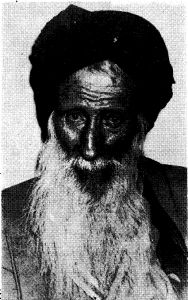A Short Tribute
Hacham Abraham Bittan was born to Bircha and Hacham Rachamim in Djerba, Tunis. He began learning Torah with Hacham Halfon HaCohen and later served as rabbi of the Hacham Yaacov Houri synagogue in Djerba.
Hacham Abraham Bittan married Falila Houri and the couple had three children.
In 1958, Hacham Abraham Bittan was able to immigrate with his wife and two of their children to Israel. They first lived in a ma'abara (transit camp) near Rechovot and later settled in Netivot. A few years later, his father and mother immigrated to Israel as well, along with his third son, and also settled in Netivot.
Hacham Abraham Bittan was a colleague of Hacham Raphael Cadir Tzaban and participated regularly in his weekly class. He was also Hacham Raphael Cadir Tzaban's personal messenger and was responsible for the allocation of tithes by the merchants of the Netivot market.
Hacham Abraham Bittan passed away on 25 Heshvan 5761 (2001) and was buried in the Netivot cemetery.
Hacham Abraham Bittan published his original commentaries in the following books: Shmo Avraham A – original commentary on the Talmud and Responsa; VeHochiakh Avraham – various sermons, Shmo Avraham B – original commentary on Torah, and sermons; Yosef Avraham – a collection of good mores.
